Five Pancake Day Traditions from Around the World – They’re Flippin’ Great
Whether it’s lemon and sugar, maple syrup and bacon or even chocolate spread that tickles your fancy, Shrove Tuesday is undisputedly one of the best days of the year. It’s a time to show off those epic pancake flipping skills (that you swear you were so good at last year), use up all the eggs, flour and milk in the house and stuff your face until you feel sick… or maybe that’s just us!
Anyway, this year we thought we’d explore how other countries celebrate pancake day and we’ve got to say, it’s been a bit of an eye-opener. Read on because you’re in for a right treat – ha, get it!
1. Denmark
On the last Sunday before Lent, Danish toy stores and bakery windows fill with toy cats, wooden barrels and copious amounts of freshly baked buns. The golden buns ooze with an assortment of sweet fillings including whipped cream, strawberry jam and melted milk chocolate. Why you may wonder? That’s because it’s Fastenlavn – Denmark’s version of pancake day!
Fastenlavn was originally the last day to feast on dairy foods, sweet flavours and special Danish buns before fasting for Lent. Nowadays it’s a chance for children to dress up as their favourite characters and hit the cat out of the barrel. Yes, you did just read that right.
Hitting the cat out of a barrel is an old Danish tradition carried out on Fastenlavn. Danish folks would gather to take it in turns to beat a wooden barrel with a stick. It is believed this was to scare the ‘evil’ cats (which often slept inside barrels) away from their town.
Fortunately, this doesn’t happen anymore. These days in Denmark, a cardboard box symbolises the wooden barrel and sweets represent the sleeping cat. There’s also a competition amongst the children to see which boy and girl can bash the ‘barrel’ the most. The winning boy and girl are then crowned Cat King and Cat Queen. Strange, huh.
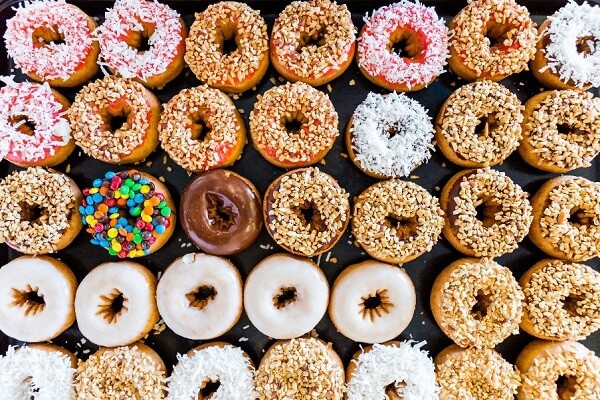
2. Lithuania
Uzgavenes is a popular Lithuanian festival which literally translates to ‘the time before Lent’. Surprisingly enough, the festival takes place on Shrove Tuesday, the day before the great fast begins on Ash Wednesday. The festival is a time of celebration full of humour, pranks, superstitions and plenty of food, and is often celebrated in public squares, large parks and family homes so that everyone can get involved.
During Uzgavenes, Lithuanian’s are encouraged to dress up as devils, witches, goats and beggars and wear fearsome wooden masks to scare off the upcoming winter. Fancy-dressers act foolishly as part of the Uzgavenes festival tradition, to make each other laugh. They sing, dance, throw water at each other and pull pranks throughout the day. Those participating are also urged to walk around and beg for pancakes and money - similar to trick or treating at Halloween.
I know what you’re thinking - these traditions just get weirder and weirder, but bear with us. Indulging in potato pancakes, doughnuts and boiled pork is also part of the festival fun. In fact, Lithuanian’s are encouraged to eat at least 12 meals during Shrove Tuesday, in preparation for the fast.
An old Lithuanian wives’ tale says that if you scrape out the Shrove Tuesday leftovers from your teeth the next day (on Ash Wednesday), tie them in a handkerchief, and wear it under your breast until Easter, you will be able to spot the real witches at Uzgavenes the next year. Why not give it a go yourself?
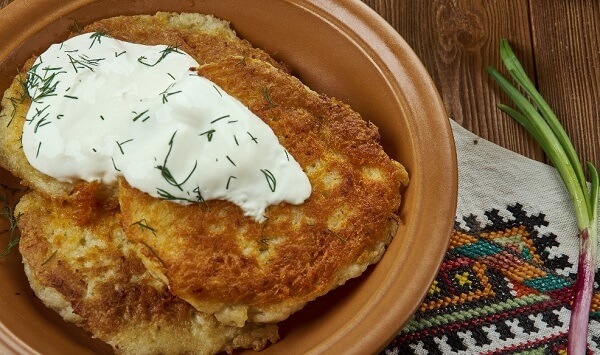
3. Canada
Canada’s pancake day is very similar to our own. The celebrations begin on Shrove Tuesday and mark the last day of indulgence before giving up meat, eggs, milk and butter for the 40 days of Lent.
Slightly different to our traditional sweet lemon and sugar toppings, Canadian pancakes are typically served with maple syrup, partridgeberry jam and sausages. However, on Shrove Tuesday, Canadian’s tend to add extra ingredients to their pancake batter. What are these extra ingredients you may wonder? Well…let us enlighten you.
Traditionally Canadian’s add small objects to their pancake mix (after they’ve cleaned the objects, of course). These trinkets include coins, buttons, rings or string and each item is said to have its own special meaning.
For example, is it believed that the lucky one who finds a shiny coin in their pancake will be rich, however, the unlucky one who bites down on a button will become a seamstress or tailor and work for the rest of their life.
Apparently, some Canadian’s have added nails (as in the sharp, silver, screws) to their pancake mix before – imagine being the unfortunate one who bites on a nail!
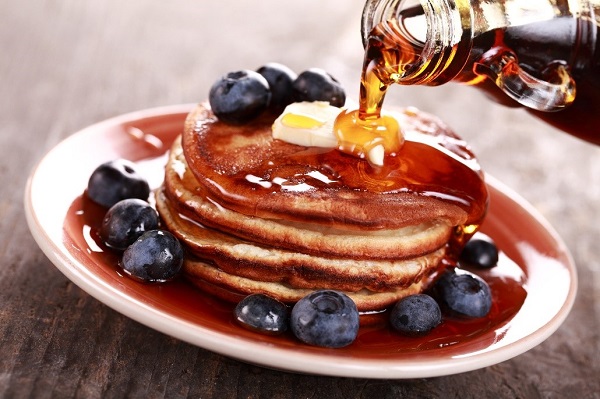
4. Poland
Back in the 17th century, Polish ancestors used to celebrate Shrove Tuesday by indulging in lard, bacon and vodka for a whole week, before fasting for Ash Wednesday. They called this their ‘Fat Week’ – sounds brilliant, doesn’t it?
In more recent times, the Polish have realised the health conditions associated with consuming nothing but lard, bacon and vodka for seven days straight, and instead created a much shorter tradition (with sort of healthier food) – Fat Thursday.
Fat Thursday is celebrated on the last Thursday before Lent and consists of feasting on only pancakes (nalesniki), pastries (chrusciki) and jam-filled doughnuts (paczki) for one whole day. Fat Thursday is considered to be one of the busiest days of the year in Poland, with many bakeries and cake shops opening in the early hours of the morning to prepare the thousands of doughnuts and pastries which will be consumed that day.
It has been said that the average Polish person eats at least three doughnuts on Fat Thursday, which equates to roughly 1,200 calories – all in one day!
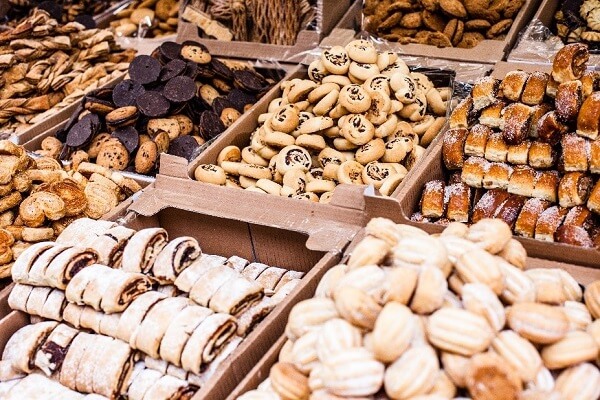
5. England
Lastly, just in case you didn’t know why us Brits’ celebrate pancake day, we thought we’d give you a brief history lesson of how and why Shrove Tuesday (pancake day) came about.
The word Shrove means to confess and this is exactly what Christians used to do before they indulged in pancakes on Shrove Tuesday. Christians would confess their sins at church and then go home to empty their cupboards before fasting for the next 40 days of Lent. This allowed Christians to enter the season of Lent and prepare for Easter with a clean spirit and home.
Instead of throwing food away, Christians would use their remaining eggs, milk and fatty foods to create a pancake mix… and this is how pancake day came about.
It is believed that the tradition to flip your pancake came from the 15th century after a woman from Buckinghamshire rushed to the church to confess her sins while mid-way through making pancakes – bet you didn’t know that!
So, grab your ingredients, choose your toppings and get flipping!
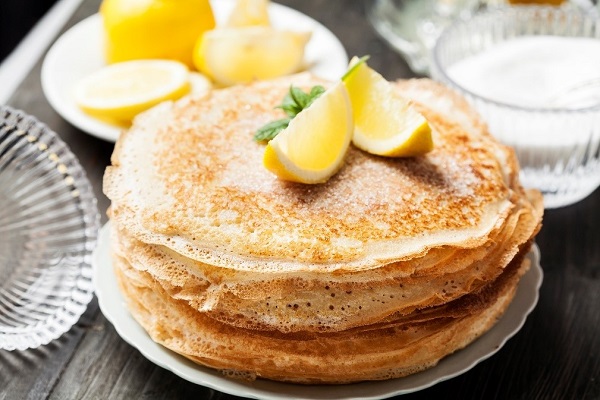
Why not take a trip and experience some of the weird and wonderful pancake day traditions yourself?









